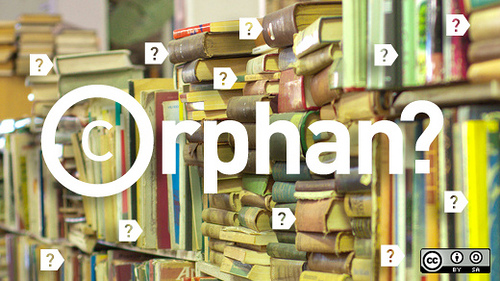
Large-scale initiatives to digitise the collections of libraries have raised the problem of rights related to “orphan works” – those for which rights-holders cannot be identified or found.
The Commission has proposed a Directive which seeks to find a balance between protecting potential rights-holders and facilitating certain uses of orphan works in the internal market.
Background
In 2004, Google announced its intention to scan millions of books and make them searchable online. The subsequent lawsuit by the Authors Guild and the later failure of a settlement illustrated the complicated copyright issues raised at global level by mass digitisation. Depending on the definition, the number of “orphan works” ranges from hundreds of thousands to millions, and is very difficult to determine. While some EU Member States already have a regime in place, the Commission’s proposal aims for an EU-wide solution. (The main points are detailed in an August 2011 Library Briefing).
National regimes
Member State regimes on orphan works vary from Extended Collective Licensing (Sweden, Denmark, Finland), mixed systems including non-exclusive licences (Hungary), to licensing proposals including the commercial use of orphan works (UK). In Canada, the copyright board has decided in over 260 cases concerning unlocatable copyright owners to issue licences since 1990. In the US, legislation has long been under discussion but Congress has so far not agreed any text.
Proposed solutions from academics range from the application of existing models to international solutions going beyond the EU. Some US scholars promote the application of the US fair use doctrine on orphan works for certain uses instead of copyright-specific legislation; others call for open access, combined with injunctive relief for rights-holders.
An EU solution
The proposal falls under the i2020 strategy which comprises the Digital Agenda including the mass-digitisation project Europeana as well as its follow-up Arrow project on rights information. A Commission Recommendation of 28 November 2011 as well as Council conclusions on digitisation of 10-11 May 2012 emphasise the importance of the Europeana project and the need for a rapid solution for orphan works.
The Committee on Legal Affairs voted on its first reading report on the proposed Directive (rapporteur Lidia Geringer de Oedenberg, S&D, Poland) in March 2012. In trialogue on 6 June 2012 an informal compromise text was adopted. The main outcomes are:
- coverage of a broader range of works: phonograms, unpublished works and partial orphans; reference to embedded works; recital on out-of-commerce works
- inclusion of audio heritage institutions as users (besides other institutional users)
- removal of the tie of specific uses to specific institutional users
- additional requirement of good faith when carrying out a diligent search
- institutional users can generate revenues from orphan works to cover their costs related to digitisation
- Member States are required to provide for fair compensation not only for future but also for past use of the works to rights-holders who reappear after reproduction of the work.
Stakeholders
Knowledge Ecology International criticises the limitations of the compromise to very specific uses and users and considers that certain national systems provide more flexible solutions.
Information sans Frontières states that an exclusion of commercial use would make partly private funding impossible.
Communia points out that the limitation to formal institutional users excludes individual end-users and non-profit initiatives like Wikipedia. Public-private partnerships would not be stimulated because private organisations could not make the works available themselves. In addition, the increased liability would lead institutional users to fear legal consequences.
For further information on this subject see also our briefing Orphan works in the digital era and our Keysource Digitisation and Online Display of Orphan Works.
[Read this briefing in PDF format ]








[…] are at stake when it comes to implement energy market reforms. It’s less obvious for orphan works – until you realise it concerns hundreds of thousands to millions of works (a good share of our […]